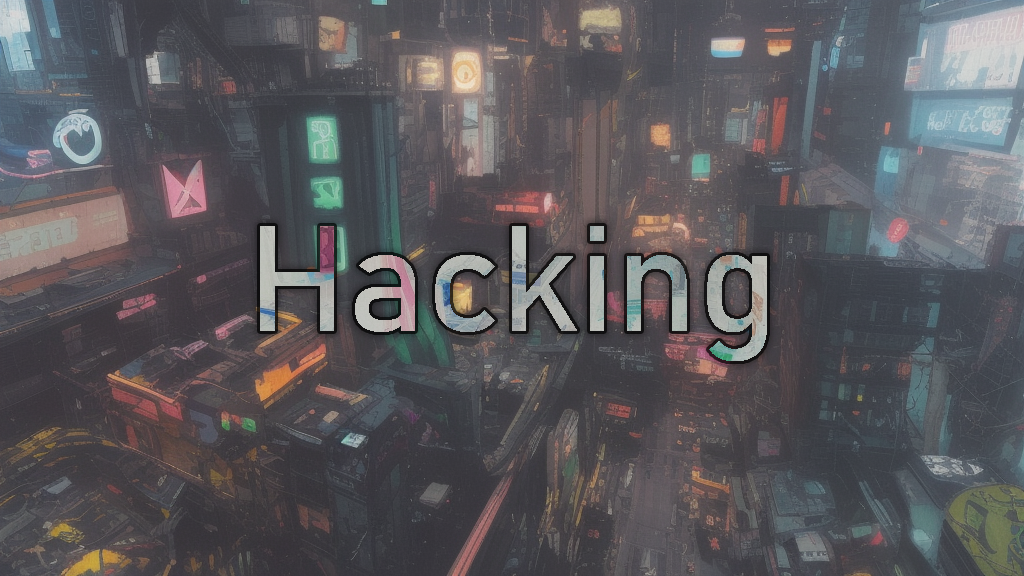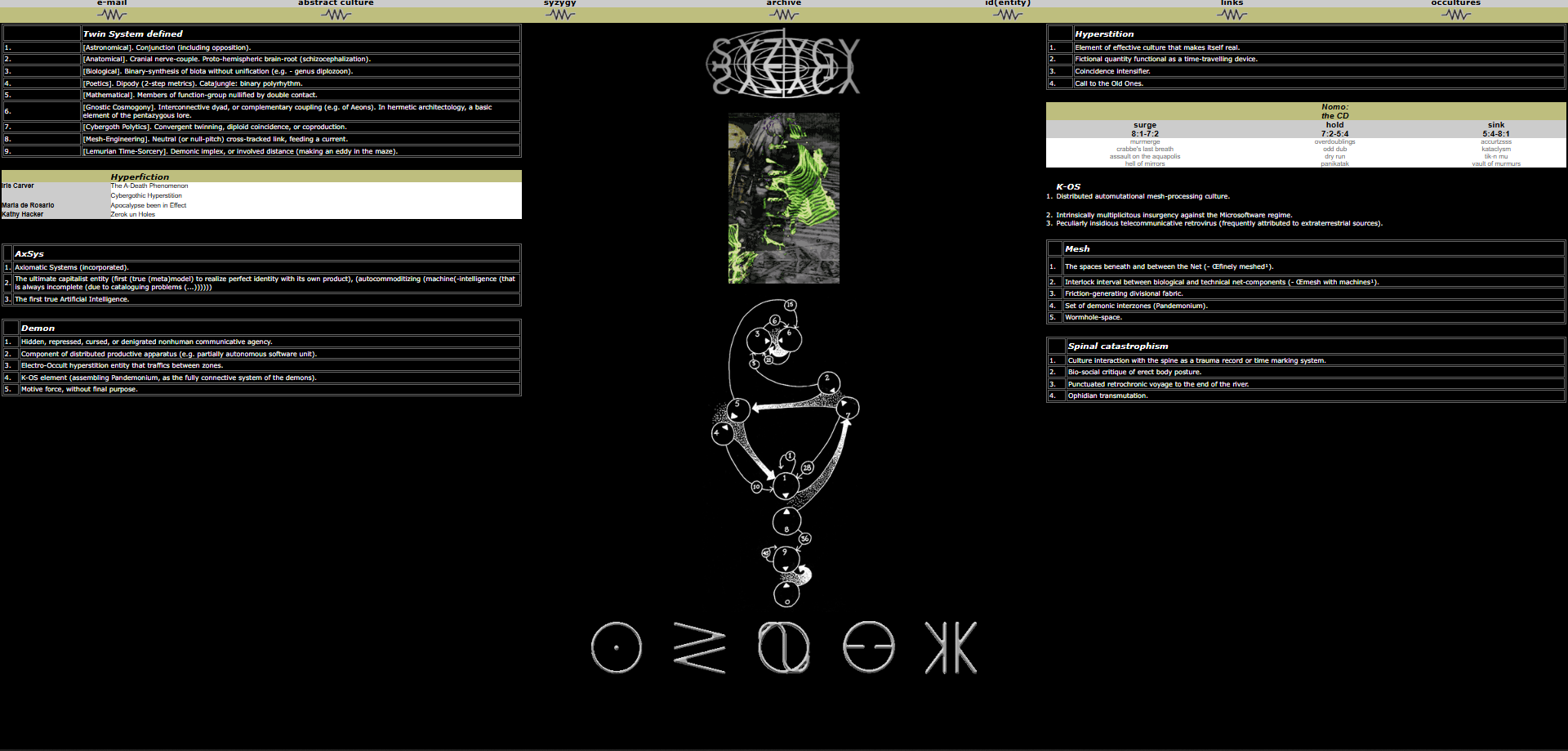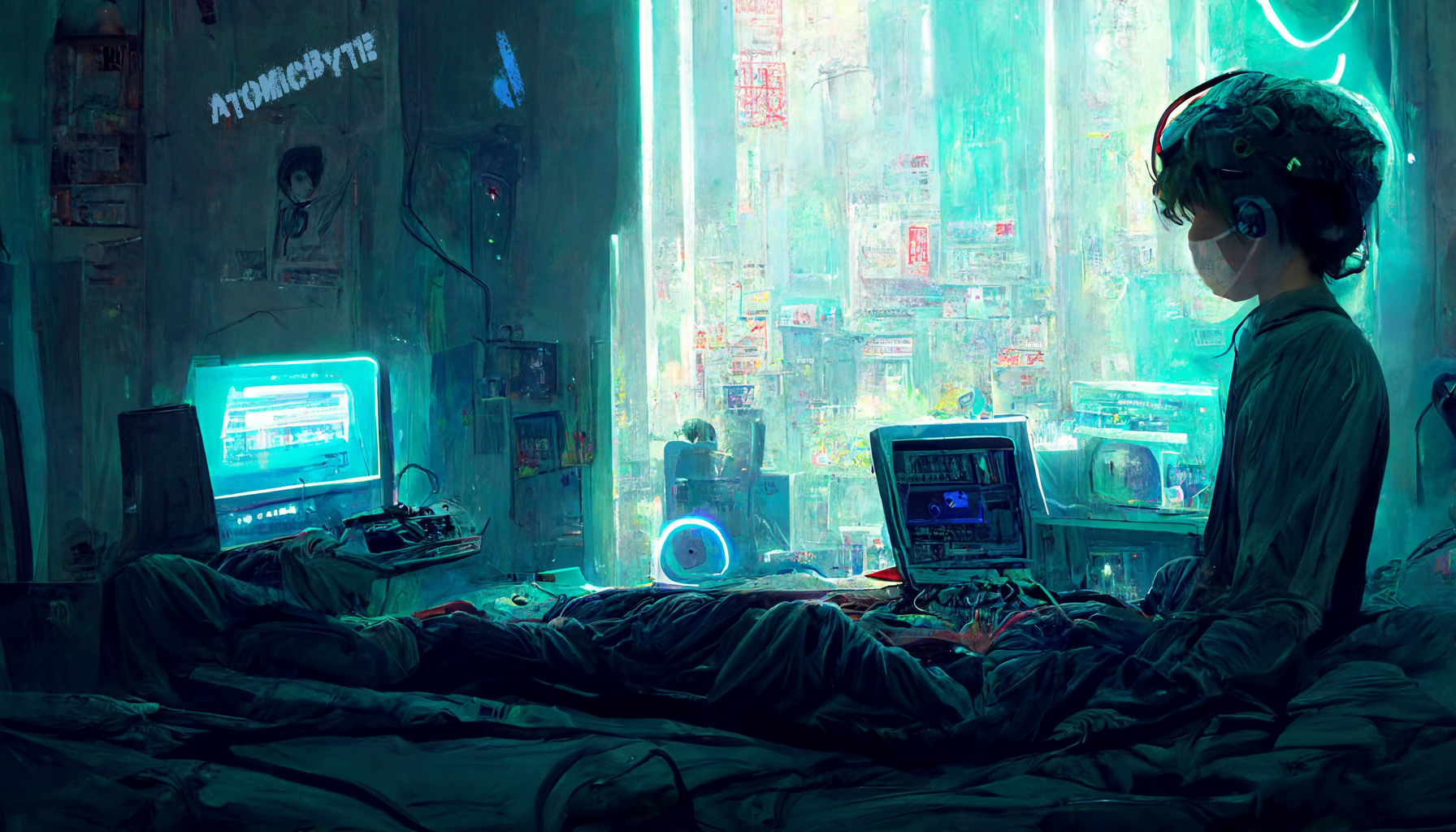A Love Letter to Hacking
15/11/2025

Note: Most of the stuff that I say in this article that could be deemed offensive is a joke. Do not take jokes here seriously, but hold the facts close. I love you all, mwah.
Okay, so this is probably going to be one of the more cringey blog posts here, but also one of the more necessary ones. I mean for this to be a sort of mix between my take on the whole cybersecurity and hacking situation and an informal educative piece on the current state of it. I intend for this to also be my response to anybody who asks me "hack this thing for me please" or "how do you hack stuff?", because that's really just not how it works. I hope to make sure that this blog post remains suitable for non-technical readers so that y'all can stop asking that type of stuff, since it's becoming annoying as hell. Most of all, this is a love letter to hacking.
There are some sensitive topics I will be discussing. Close your ears if that's not for you.
Why should I listen to you?
This section should only really matter to you if you're a bald 40-year-old red team specialist (and there's a non-zero chance you are). If you're a non-technical reader or are unfamiliar with cybersecurity lingo, skip this part.
You should really listen to me. Well, you don't need to, but I highly suggest it. I'm really not a professional and don't have any formal education on cybersecurity, I guess I should probably establish some credibility, though. I've found some vulnerabilities. Off the top of my head, I think CVE-2025-59159 has the highest CVSS (9.7) that I've discovered. I've participated in a bunch of CTFs and I've gone through the whole shebang. Nevertheless, I've played the game. I know how it goes :P
Once again, you can consider this either an outside perspective or just what someone who's been on all the sides of hacking has to say.
So, you're a hacker?
Yes. Yes I'm a hacker, but that really depends on your definition of the word "hacker". Etymologically, the word is derived from the word "hack" based on the Proto-Indo-European "keg" (hook/tooth). Back in the day, "hacking" meant engaging "playful cleverness". To enjoyers of hacker culture, like yours truly, being a "hacker" is essentially being someone who can think outside the box and has tremendous critical thinking skills. They look at everything and question, "what if?" This is why there is so much confusion around the word "hackathon". There's no actual cybersecurity involved a lot of the time and non-technical people even confuse them with CTFs (competetive hacking)
Now, let's talk about the shitshow of today. Today, what most people mean by "hackers" are either cybersecurity professionals (if you're slightly more educated on the topic) or script kiddies, which is what popular culture believes. We have whitehat, blackhat and greyhat "hackers" (note the quotes). When I use the word "hacker" in quotes from here on, I'm talking about the superficial modern meaning of hacking.
Categories
Whitehat "hackers" are cybersecurity researchers that focus on maintaining and fixing the security of computer systems. Most of them are corporate sellouts (there's a lot of really cool ones too though). Ethical? Yes. Legal? Yes.
Blackhat "hackers" are the ones you hear about, "hacking" the roblox accounts of 5-year-old and scamming crypto bros for 10 bucks a pull. Most of them are actually what we would call "script kiddies". They have almost no actual working knowledge of computers and simply use pre-discovered vulnerabilities and tools. It's a no-effort "skill", and the correct term for what they do isn't "hacking", it's "pwning", since there's no real hacking involved, in a cybersecurity or general sense.
Greyhat hackers hack, not for money, but for their own cause and are a community greatly intertwined with hacktivism (hacking + activism). J0rian describes it as "hacking because you don't agree with what they do instead of gaining from it". Some great examples are the infamous anonymous, maia crimew and my dearest Phineas Fisher. Some nice examples of this are maia's fuckstalkerware, which was their response to evil stalkerware companies that let people stalk each-other (they hacked them. And that's pretty cool), and the anti-beastiality Operation Denmark, where some hacktivists hacked the denmark government to prevent "dog-rape".
You may be asking me, "what type of hacker are you?"
My honest answer is: I'm a whitehat hacker, but I do whatever feels right to me. I just go with it. I'm not "hacking someone" for you. Hopefully that's clear enough. You're asking me to pwn someone. That's not my thing. I can probably do it, but my answer will always be "no".

Culture
This section is basically for hacker culture. Get prepped because these are some seriously awesome rabbit holes. In my opinion, hacker culture is the real meaning of hacking.
Homo Ludens
If y'all don't know, I'm a culture junkie. Homo Ludens is a book published by the Dutch cultural theorist Johan Huizinga (absolute twink btw). It discusses the importance of the play element of culture and society. I find a lot of the topics discussed in it to resonate a lot with hacker culture in particular, so much so that I would say that the book itself is literally a prophecy.
Greyhat hackers are, in my opinion, the closest to actual hackers. Ethical? Complicated. Illegal? It's a 50-50. [OPINION INCOMING] They're pretty much online existentialists: the digital landscape is inherently open, so rigid moral boundaries are absurd. In fact, is ethicality in this case even black and white? Assuming that sort of binary morality is definitely an ethical simplification. You can't generalize an entire spectrum of intentions to yes and no. They're some of the only homo ludens left. I'm not saying I condone their actions, but there's definitely more complexity there than what most people assume. Most of them really support hacker culture, which I deeply respect.
Biohacking
Biohacking is one of the most amazing applications hacking ideology. It's for people who modify their bodies and, in the process, become "transhuman" or "posthuman".

Biohacking uses your own body's biology as an art form, and allows you to re-write it however you want, whether that's just implanting subdermal RFID chips and magnets in your hand, or building an EEG setup to read your mind and provide a continuous feedback loop to an LLM about what you're doing, or just give yourself cat ears. You can also supply small voltages to either side of your ears to modify your sense of balance (basically mind control). This is called GVS (galvanic vestibular stimulation) and it's not even that hard. There's sooo much you can do, and it's all a part of turning yourself into a cyborg. You know what? Here's a list of a whole lot of cool shit you can do (put together with some of my friends from the biohacking community):
- quantified self, continuously monitoring biometrics yourself that you would normally only get during a hospital visit
- genetically modifying your gut to overcome lactose intolerance
- implanting a subdermal file server
- using a nuclear battery to always know the time
- making yourself glow in the dark
- changing a disability into an expansion of abilities by designing your own prosthetics that vibrate to identify colors or let you hear beyond the normal range of human hearing
- add a sixth sense to detect and interact with magnetic fields
- blow your dick off with a battery powered vibrator implant
This blog post is supposed to be balanced, though, so here is some of the stuff I don't completely agree with: As for longevity in the context of DIYBio, there is no clear proof of efficacy and it's vibes based. A guy named David Ishee also wants to literally create "unicorns" and "dragons" and is in the process of procuring funding, you may not want to root for this, though, since it would probably be an absolute bloodbath of killing and breeding. Kind of inhumane, if you ask me.
I myself, am a cyborg, but that's best left for another blog post.
The CCRU
The cybernetic culture research unit (CCRU) (wikipedia here) is something I heard about quite recently. At the time of writing this, it's my current hyperfixation. They have a bunch of cool works and it's a great idea to read some of their stuff. They disbanded in the early 2000s. They were a group comprised mainly of accelerationists. Most of what they wrote seems to be tightly integrated and a large aspect of hacker culture. If you're into cyberpunk, occultism and philosophy, it's for you.

Most of what they wrote is fiction, but it's extremely enjoyable. Some of my personal favourite related literature is Nick Land's "Meltdown" and "Machinic Desire" as well as all of the other "Fanged Noumena" stuff.
Addiction
As hard as it may be to believe, it's possible to get addicted to hacking. For a while, I believe I was. When you hack something, it gives you a high that many other people have never felt in their lives. It's very distinct and very recognizable. There was a study conducted on this a while back in 2016 specifically about hacking being a literal gateway drug. This addiction is likely what birthed hacker culture. A worthy offspring imho. I feel like this was something that I need to mention, since hacking can be a problem for some people.
Ethos and Philosphy
Anti-authority and skepticism are the building blocks of hacker culture. That compulsive desire to seek freedom wherever possible and protest. Hacking is not sticking with the slop you've been given and moulding it into something better. The need for freedom of information: knowledge is what empowers society.
Most of all, I believe meritocracy plays a huge role in the core philosophy. I love listening to stories about how people gained their reputation in the community and how buff hackers became DEFCON goons and how you can just do things and meet people and stand on their shoulders and go higher and higher and higher. It's all quite crazy.
Communities
I've mentioned this before, but there's so many hacking communities which show that there's so much more to this than cybersecurity. If I wanted to, I could keep writing this post forever and I wouldn't even break a sweat, but time is precious and limited, so here are some of the greatest communities:
- Reverse Engineering
- Kindle Modding
- IoT Hacking
- The Grinders
- Game Hacking
- Minecraft Server Scanning
- Physical Security
- Lock Picking
- 88x31ers
- CTF players
I could keep this list going for decades.
Conclusion
If someone sent you this article and it wasn't me, then this is just the author's perspective and not a general opinion in the space, but if you're interested to know what I have to say about pursuing the industry, then go ahead and read it.
All that being said, a bunch of people say that I should pursue a career in cybersecurity. I know all the notes to play and how to play them. Why wouldn't I? My answer is the same as always: no. I hack for fun. I'm an "O5-3: The Kid" fan. I sit around and mess with shit. I stay ethical. The industry is exploitative from what I've seen. Bug bounty is a scam. Companies are garbage and don't care about their security, so I'm going to jump around and make as much noise for as long as I can and I want you to know that I don't give a flying fuck about what you say.

So I'm writing this love letter to you, hacking. When I'm bored or depressed, you give me community, purpose, life. You gave me freedom. You are why I wake up every day. You are my driving force. I hate you sometimes. You're all I think about. You might think I'm crazy and you'd probably be right. I'm writing a letter to an abstract concept. I'm writing this at 3 am and my exams are in a week. I'll study later. For now, I'll just spin around in my chair and think about you and think about you and think about you and think about you and when others taint your name I'll be there to full box them and I'll send them this letter and they'll repent and they'll cry.
Love, Jess/Jaisal/AtomicByte/whatever other name you know me by.
For spear phishing attempts, business inquiries, love letters, etc: or